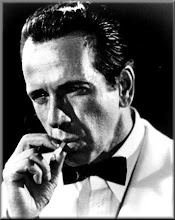 What is the book in question? The Bible, of course. But, in a close second is Understanding Depression by Donald F. Klein and Paul H. Wender (1)
What is the book in question? The Bible, of course. But, in a close second is Understanding Depression by Donald F. Klein and Paul H. Wender (1)Major Complaint: No references. Not a single one. I guess they wrote this book from an a priori position of authority; therefore, everything they say is gospel and does not need to be supported by facts and should not be questioned (That's why it's second only to the Bible).
Speaking from atop a mound, these two researchers start with this, "Depression may be a normal human emotion-a response to loss, disappointment, or failure. Some depressions, however, should more properly be put in the category of common biological diseases...pg1" Sadness, not depression, is a normal human emotion. Depression is a specific mental illness. What's that? I will have to defer to the eminent psychopharmacologist Stephen M. Stahl (I wonder, do Rheumatologists ever call themselves non-steroidal anti-inflammatoryist?), "Mental Illnesses are defined as mixtures of symptoms packaged into syndromes. These syndromes are consensus statements from committees writing the nosologies of psychiatric disorders for the DSM of the APA and the ICD. Thus, mental illnesses are not diseases. pg178" (2) Consensus statements from committees? Ooh, I get nauseous from all that complex medical jargon. That's why I'm a psychologist, not smart enough to grasp this stuff.
In their manifesto, they list several reasons for writing this tome, the first being, "To explain what biological depression is and to clarify the difference between depression, a normal emotion, and biological depression, and illness. pg1" I've shown in the above-paragraph why that goal is futile. But there's more, "biological depression is common- in fact, depression and manic-depression are among the most common physical disorders seen in psychiatry. pg2" What?! Physical disorders?! So that means depression is like lupus or cancer. Do they provide any evidence? Nope, remember there are no references. Well, how about an a priori explanation? Since they use complex medical terminology like "heredity," "genes," and "chemistry," stuff that goes over my head, I'll use their words instead. "In sum, although we know comparatively little about the altered chemistry of individuals with depression, our knowledge is advancing rapidly. pg96" Let me get my Merck Manual to translate that. In other words, there is no definitive proof of a chemical imbalance, but we're going to pretend there is anyway.
Should anyone be listening to me anyway? According to these authors, no. "It is essential that people who suspect they are suffering from depression know who is qualified to help. Not all physicians or mental health workers-such as psychologists, social workers, and psychiatric nurses-have had adequate training in the diagnosis and treatment of depression. pg4" Then why do all those neurologists, PCPs, and even psychiatrists refer patients to little ol' me for differentials and med checks? These practitioners even require that I make recommendations for treatment and rehabilitation. They probably should stop doing that since, "Nonphysician therapists, such as psychologists, social workers, and pastoral counselors, are handicapped in treating depressive patients because of their lack of medical training...pg171" How about this, "leukoencephalopathy." I think that's proof enough of my medical credentials.
"Psychologists are often still taught to use diagnostic techniques that are no longer considered useful by biological psychiatrists, and they were not trained to recognize biological factors in mood disorders and other psychiatric illnesses. pg172" That's because psychiatrists run blood and genetic tests that have the ability to diagnose the majority of the 400 diagnoses is the DSM-IV. Wait a minute, they don't do that? Then what are the tests that these biological psychiatrists use? According to the authors, "In the psychiatric part of the evaluation, the psychiatrist will inquire about definite signs and symptoms characteristic of depression and other psychiatric conditions. pg100" Well garsh, I wish I were a baby bumble bee...It's called a clinical interview folks! All health care professions learn how to conduct them.
I bought this book two-years ago. I read one paragraph and then my third testicle descended (painful). These guys are d-bags. Many nonphysician therapists (a dumb terms since most 'real doctors' don't do therapy, including psychiatrist, 3) receive training in biology, pharmacology, and other related disciplines (4). The reality is, biological psychiatry is a field in search of a science (5). This book is only meant to shore up the low self-esteem (that's right, a psychological explanation) of these guys by belittling the professions of others. Sadly, I believe these two guys truly believe in what they're preaching. The Last Psychiatrist sums it up best,"The reason he believes it is his entire professional existence-- his whole identity-- is predicated on believing it. He's not a scientist, he's a priest. (6)" Be proud of what you do.





No comments:
Post a Comment